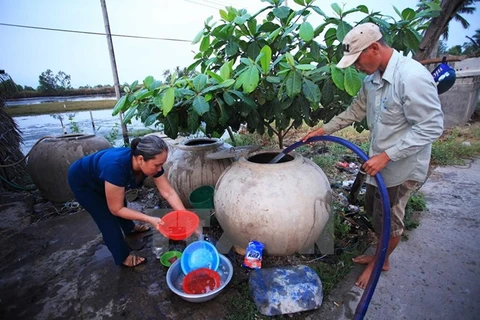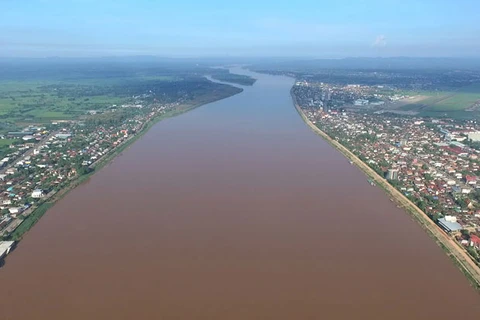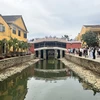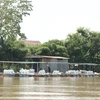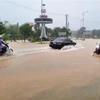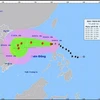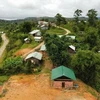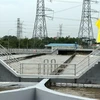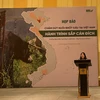Can Tho (VNA) - A workshop on sharing urban experiences in tackling climate change was held in Mekong Delta city of Can Tho on August 30.
The event, organised by the Institute for Social and Environmental Transition (ISET) – International Vietnam and the Can Tho People’s Committee, brought together representatives from localities and researchers.
Representatives from ISET Vietnam shared the outcomes of the Asian Cities Climate Change Resilience Network (ACCCRN) programme implemented in India, Thailand, Indonesia and Vietnam.
Ngo Thi Le Mai, country coordinator of ISET Vietnam said the programme aims to enhance the awareness among the cities of Can Tho, Quy Nhon and Da Nang, while providing support for them to adapt to climate change.
Under the programme, a number of projects have been carried out, such as managing landslides in river banks in Can Tho City, mititating flood risks in Quy Nhon, building storm-proof houses in Da Nang and preventing dengue fever outbreaks.
Deputy Director of the Research Institute for Climate Change at Can Tho University Nguyen Hieu Trung highlighted the unpredictable patterns of floods from year to year, and attributed them to climate change and dams on the upper Mekong River.
Trung highlighted other impacts on local residents’ lives, such as salt intrusion, landslides and damaged infrastructure.
The region needs to develop new plans for managing floods, such as zoning off areas for reserving flood water and establishing aquaculture and tourism along canals and rivers, instead of residential areas.
He also suggested developing green cities in the Mekong Delta.
Ky Quang Vinh, a local environmental official, highlighted the need to ensure surface water supply for the region by storing underground water, building reservoirs and processing seawater into fresh water.
Vice Chairman of the Can Tho People’s Committee Dao Anh Dung said numerous projects on adapting to climate change have been implemented in the city. Since 2008, the city has participated in the “ACCCRN programme”. It was chosen as a member of the US-based Rockefeller Foundation’s 100 Resilient Cities Network this year.-VNA

